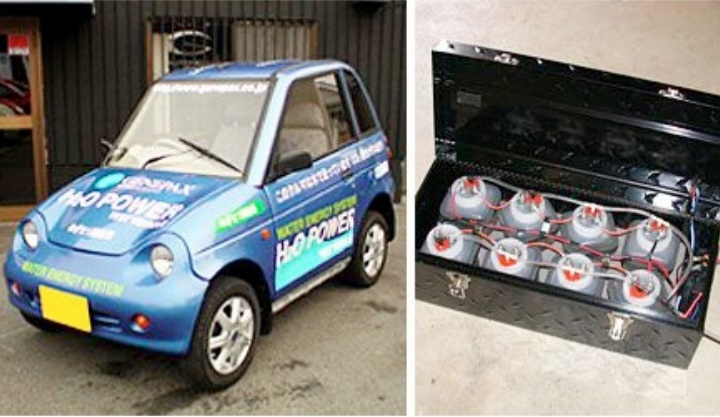Can Water Fueled Car Succeed in Nigeria?

By Yemi Olakitan
An automobile that purportedly runs entirely on water, known as a water-fueled vehicle, has been a topic of global discussion.
Numerous worldwide patents, newspaper articles, popular scientific magazines, local television news segments, and websites have all explored the concept of water-fueled automobiles.
However, reports suggest that many of the claims associated with these devices have been debunked as pseudoscience.
These water-fueled cars can take various forms, with some being hybrids that claim to derive part of their energy from water in addition to a conventional fuel source like gasoline. Others are claimed to produce fuel entirely from water onboard the vehicle.
The science behind these claims revolves around the process of electrolysis, which can separate water into its constituent elements, hydrogen and oxygen. While hydrogen is a highly energetic and combustible gas on its own, the act of recombining hydrogen and oxygen to form water releases some of hydrogen’s energy.
However, water itself does not catch fire. It’s important to note that the energy required to break apart a water molecule through electrolysis is equal to the energy generated during the combustion of hydrogen to form water.
This means that, due to energy losses from waste heat during conversions, obtaining more energy from water than is needed for its creation would violate the fundamental laws of thermodynamics.
Despite the skepticism surrounding the concept, Prof. Ibrahim Dabo, Dean of the Faculty of Engineering at Ahmadu Bello University Zaria, has announced the institution’s ambition to create a water-powered car built in Nigeria.
He made this statement during an interview with the News Agency of Nigeria in Zaria while discussing the celebration of World Engineering Day for Sustainable Development in 2023.
Dabo highlighted the university’s recent achievements, including the creation of an electric vehicle and a Shell Eco-marathon vehicle. He also revealed their ongoing efforts to develop an automobile that runs on water.
According to him, the university-designed Shell Eco-marathon car demonstrated remarkable fuel efficiency, traveling more than 100 km on a single liter of petrol.
He mentioned that they aim to further improve its fuel efficiency and noted its successful performance in South Africa.
While Dabo acknowledged the low-key celebration of the event at ABU due to the 2023 federal elections, he emphasized the relevance of the event’s theme, “Engineering innovations for a more resilient world.”
He called on the government to support outcome-based learning at tertiary institutions to enhance the quality and capabilities of Nigerian engineers.
Additionally, he advocated for increased collaboration between academia and industry, expressing concern about the disconnection between the two in many areas.
The success of Nigeria’s water-fueled car endeavor remains to be seen, as the concept continues to be met with skepticism and scientific challenges.
